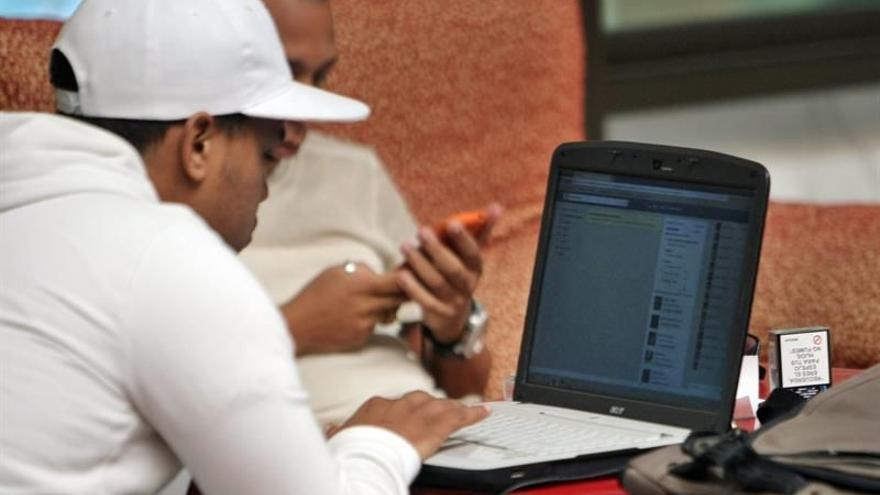
14ymedio, Havana, 20 February 2018 — Internet access on the island remains dependent on a satellite connection following an agreement signed between the Telecommunications Company of Cuba (Etecsa) and the SES Networks, a company based in Luxembourg that operates satellites, which aims to increase the availability of the Internet through this service.
The agreement, according to a note published Tuesday by Etecsa, will mean that connectivity on the island will not depend on the single system currently made up of fiber optic networks.
Etecsa asserts that the satellite service of the Luxembourg company, which provides communications services to telephone operators, governments and institutions, provides, in some aspects, a quality very similar to that of fiber optics.
Silvia Moschini, an expert in information technology, told the news channel CNN earlier this year that Internet access in Cuba is via satellite, which caused it to be very expensive. “But there is submarine cable that circles the Island and if the political decision to allow its use is made, access to the Internet would be as good as we can see in the United States or in Latin American countries,” she said.
In February 2011, Alba-1, a fiber optic cable between Cuba and Venezuela, was announced by the Island’s authorities as a step towards greater autonomy and connectivity for domestic Internet users.
The Cuban ambassador in Venezuela, Rogelio Polanco, assured that the island would benefit from less expensive internet access and high quality telecommunications service. Meanwhile, Waldo Reboredo, Vice President of Telecommunications Gran Caribe, described the installation as the first step towards communications independence.
The cable was delayed for two years before showing its first signs of activity, when in 2013 an expert from Renesys, an American firm that analyzes Internet traffic, reported that his firm had detected that the Alba-1 cable had started to function.
The installation of the cable cost almost 52 million euros and experienced successive delays, while the Cuban government continued to rely on the services of satellite internet providers.
In 2016, Google and Etecsa signed an agreement to improve access for Cuban users to Google’s content, such as Gmail and YouTube. However, the island’s authorities declined the American giant’s offer to extend the infrastructure for connectivity across the country, contained in a proposal made by its directors.
At the end of December Mayra Arevich, president of Etecsa, announced that this is the year the internet will arrive on mobile phones. “We have prepared ourselves to start selling the internet on mobile phones,” the official told the YouTube channel Cuba Hoy (Cuba Today). “We are working to accomplish this type of access.”
___________________________
The 14ymedio team is committed to serious journalism that reflects the reality of deep Cuba. Thank you for joining us on this long road. We invite you to continue supporting us, but this time by becoming a member of 14ymedio. Together we can continue to transform journalism in Cuba.
